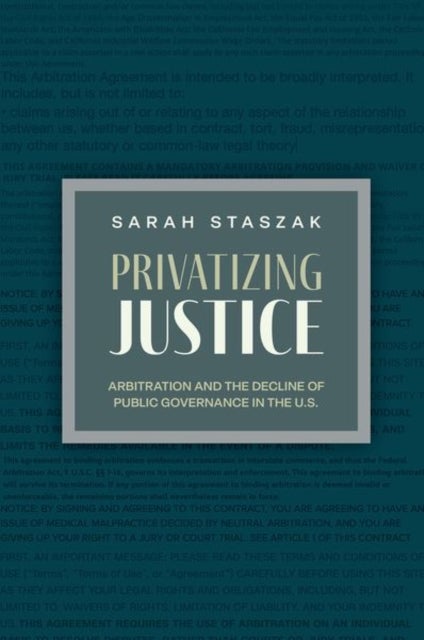
Privatizing Justice av Sarah (Research Scholar Research Scholar Princeton School of Public and International Affairs Princeton University) Staszak
299,-
One of the primary goals of the 1970s-era conservative legal movement was to undo New Deal policies that favored labor at the expense of capital. One of the movement''s most effective strategies turned out to be advancing bipartisan legislation on arbitration and convincing the courts that settling disputes that way was preferable to litigation. Today, most consumers and employees today are bound by arbitration agreements, in which they are required to submit all future grievances to a private, binding system of arbitration and forfeit access to the legal system. Arbitration as originally conceived well over a century ago, however, stands in stark contrast to the arbitration in practice today. What changed is that Congress, the Supreme Court, and the private sector began to promote its use in the late twentieth century as a means of protecting corporate and other powerful institutional defendants from the costs of litigation and government regulation itself.How did arbitration shift fr








